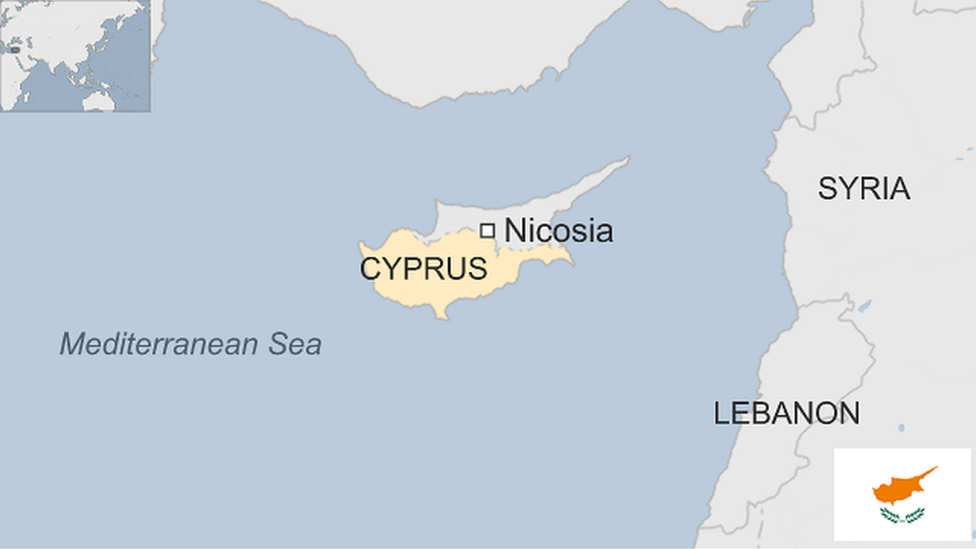'My mother gave me away to give me a better life'
- Published
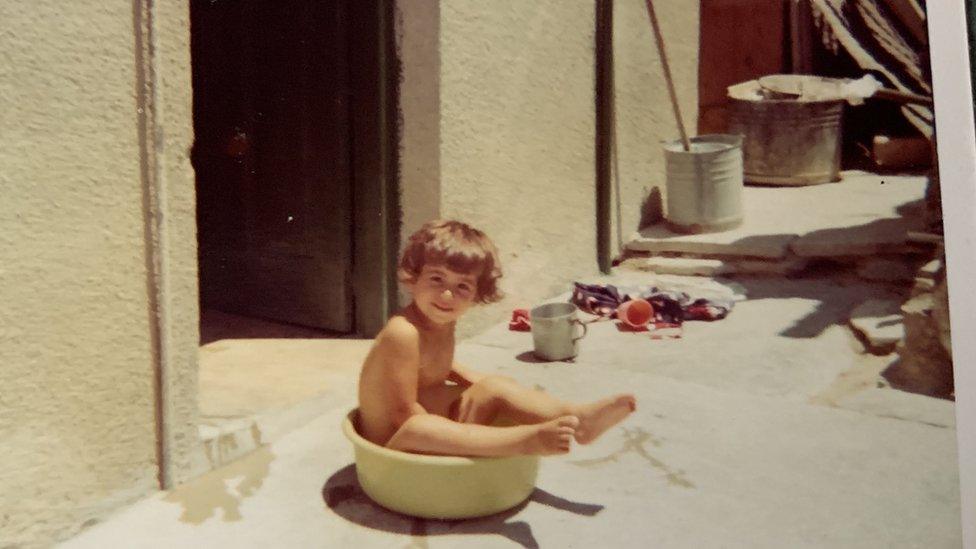
Xenia Karayiannis was living in Cyprus in 1974 before the Turkish invasion
Xenia Karayiannis was just three when she was separated from her mother following the 1974 Turkish invasion of Cyprus and would not be reunited with her until she was 17. Her story is among those featured in a new documentary, Queens of Amathus, which explores the lives of women who migrated from the Mediterranean island and settled in Birmingham.
"It's not something you can describe, to give a child away. It's not just the impact on my mum, but also the impact on me, I feel I was robbed of my childhood, [but] I understand why she did it and the sacrifices that had to be made."
Xenia has only sporadic memories of the Turkish invasion of Cyprus in 1974.
She was born in London to Greek Cypriot parents three years earlier, but had returned to the Mediterranean island with her mother following her parents' separation.
They lived with her grandparents in Famagusta, a popular holiday destination that boasted a "beautiful coastline".
But their lives were to change forever when Turkey invaded the north of the country, the fighting displacing thousands of Cypriots, both Greek and Turkish.
The family fled to a refugee camp just outside Larnaca, where they would stay for months.
When word reached her father who was still in England, he asked his brother who lived in Limassol to find his daughter, who, being British-born, could return to the UK.

Ruins of hotels line the coast in the Varosha district of Famagusta, which has been abandoned since 1974
"My mother didn't want to part with me and it was very very difficult for her," said Xenia. "It was a very hard decision to make to give up your child."
"My uncle was very adamant and said 'it's for the good of the child, she's going to have a better future' and 'once it's all over you can come back to London and everything will be OK again', but unfortunately that wasn't to happen because of the situation and lack of communication.
"Everyone just lost touch, there was no way of keeping in touch.
"You couldn't send a letter because there was no fixed abode. The safest way was to give me away."
The conflict and separation had a profound impact on Xenia and she returned to England "a different child".
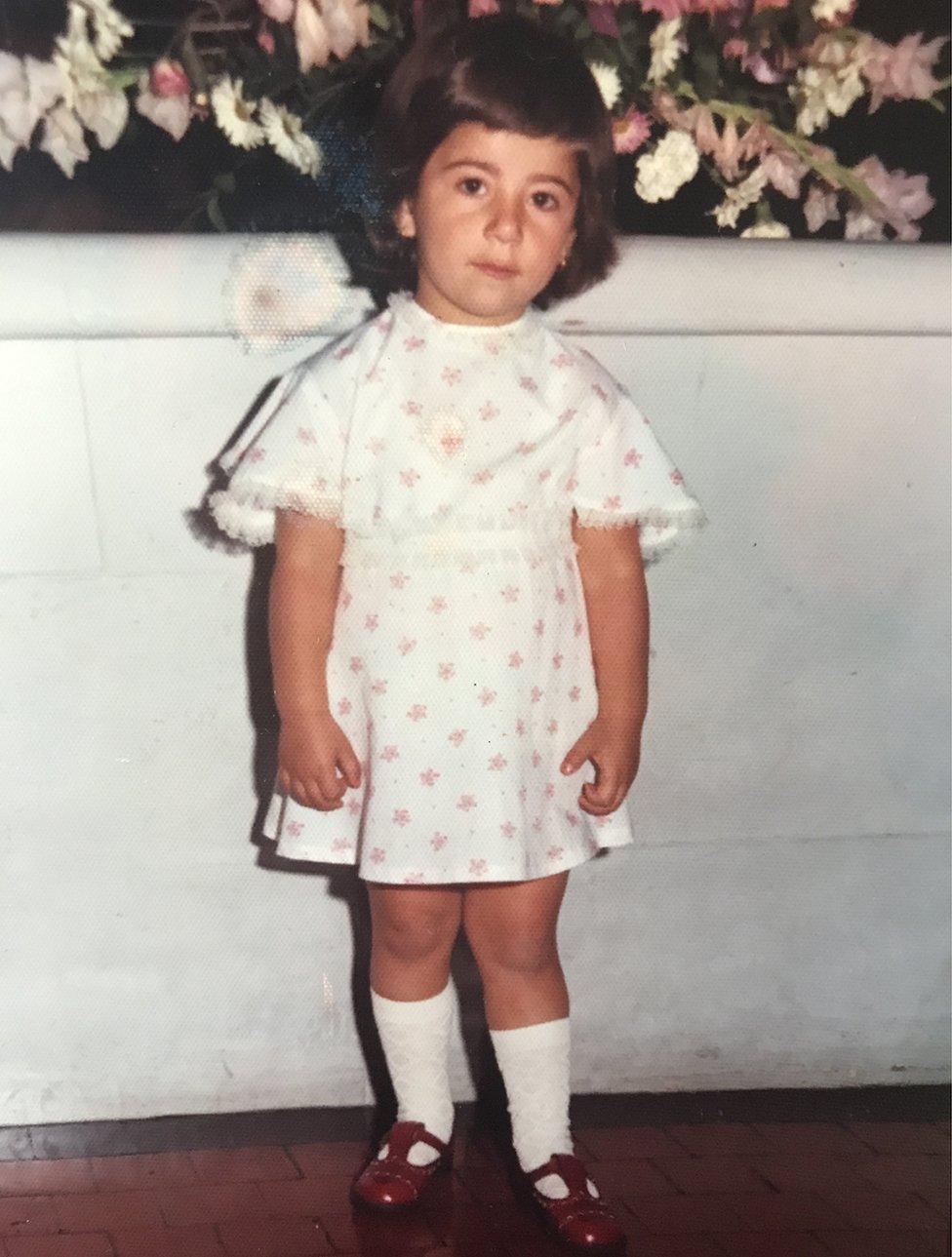
Xenia Karayiannis, pictured back in London aged three, shortly after arriving from Cyprus, said the family had no way of keeping in touch

"I would have nightmares at night and wake up screaming. It stayed with me for a very long time," she said.
"I always wondered whether it was something I had imagined or something I had had nightmares about or whether it was something that actually happened."
Aged 11 she moved to Birmingham and her father took over her uncle's fish and chip shop in Bordesley Green, where Xenia would help out from an early age.
But growing up there was a void.
"All this time I grew up not knowing my mother, I didn't know who she was. No photos were ever shown or shared, but the majority were lost in the war."
It was not until 1987 that out of the blue she received a letter from her mother.
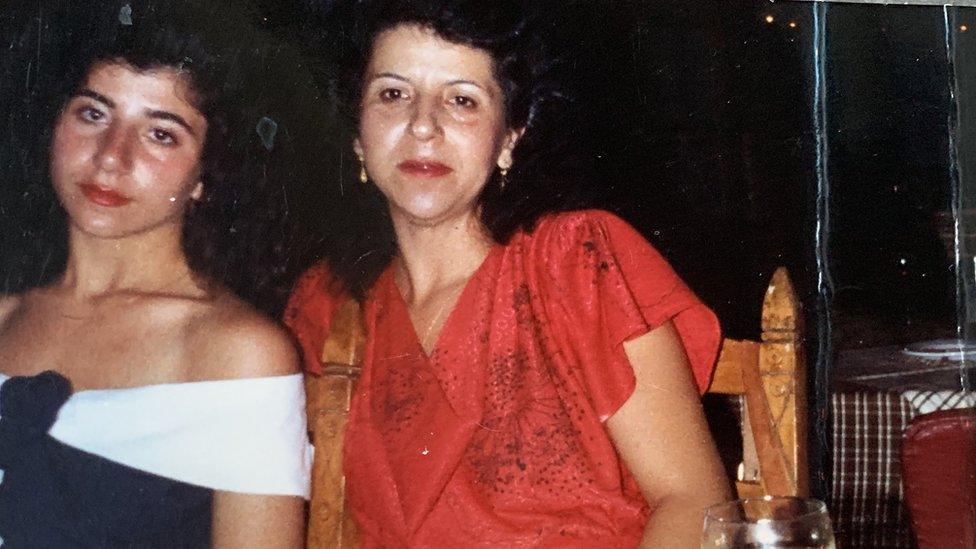
Xenia and her mother Helen were reunited in 1987
"The first thing I took out was a photograph," she said. "Suddenly I found myself looking at a woman who looks just like me.
"It was very bizarre, very surreal, the similarity was just astonishing."
Later that year she flew to Cyprus, where her mother still lives.
It was an emotional reunion. "I was greeted by a family I never knew I had at Larnaca airport, a day I will never forget."
As mother and daughter got to know each other, it was a bittersweet time for Xenia.
"The doctors said because I had been so traumatised it affected my childhood memories.
"I felt like I was letting her down because I couldn't remember.
"That was the hardest part, to tell your mum that you don't remember her. It was so painful."
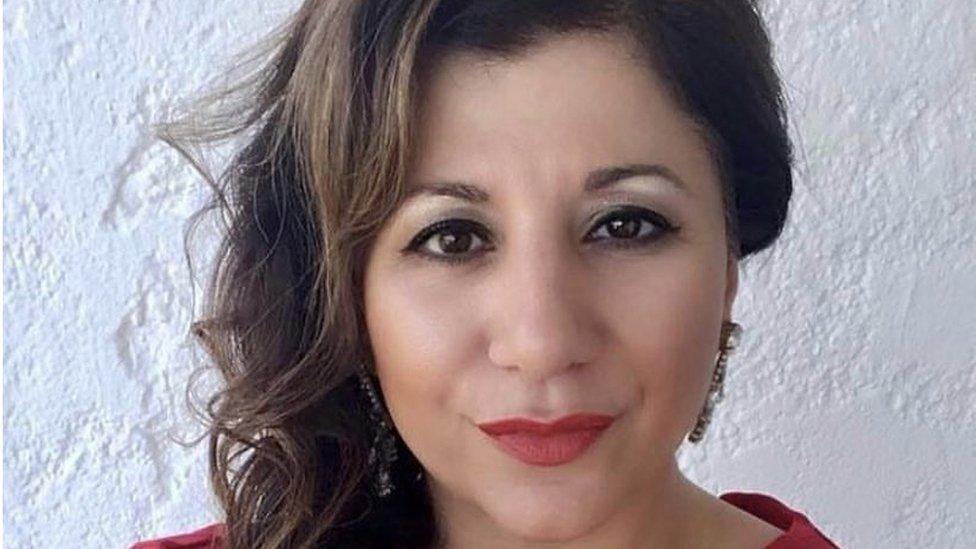
Making the documentary had been an "emotional" and "painful" experience, Xenia said
Forty-five years on, Famagusta remains abandoned.
"Our homes and towns and villages became a ghost town," Xenia said.
"We were never allowed to go back and that's the most upsetting part because I never got to see where my mum came from or where I lived as a child."
Xenia, now 48 and mother to 25-year-old Anastasia, still lives in Birmingham, in the suburb of Moseley, and has a PR and events business.
Sharing her story for the documentary was a "rollercoaster", she said. "It was emotional, painful and a big responsibility to represent my community."
But she added: "It's been an amazing journey."
Queens of Amathus premieres on Sunday 3 November at Cineworld, Broad Street, Birmingham, and will be screened during Birmingham Film Festival on Thursday 7 November.
You may also be interested in:

Follow BBC West Midlands on Facebook, external, on Twitter, external, and sign up for local news updates direct to your phone, external.
- Published14 January 2014
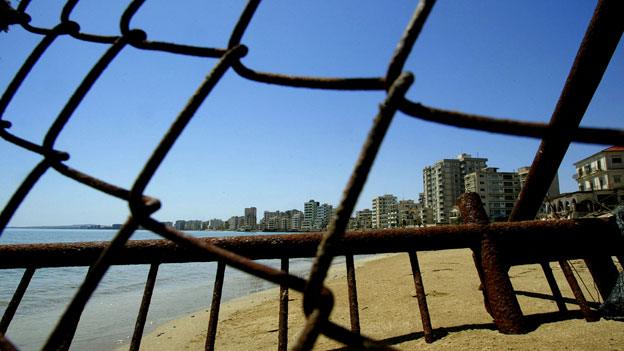
- Published17 October 2022
- Published7 April 2023
